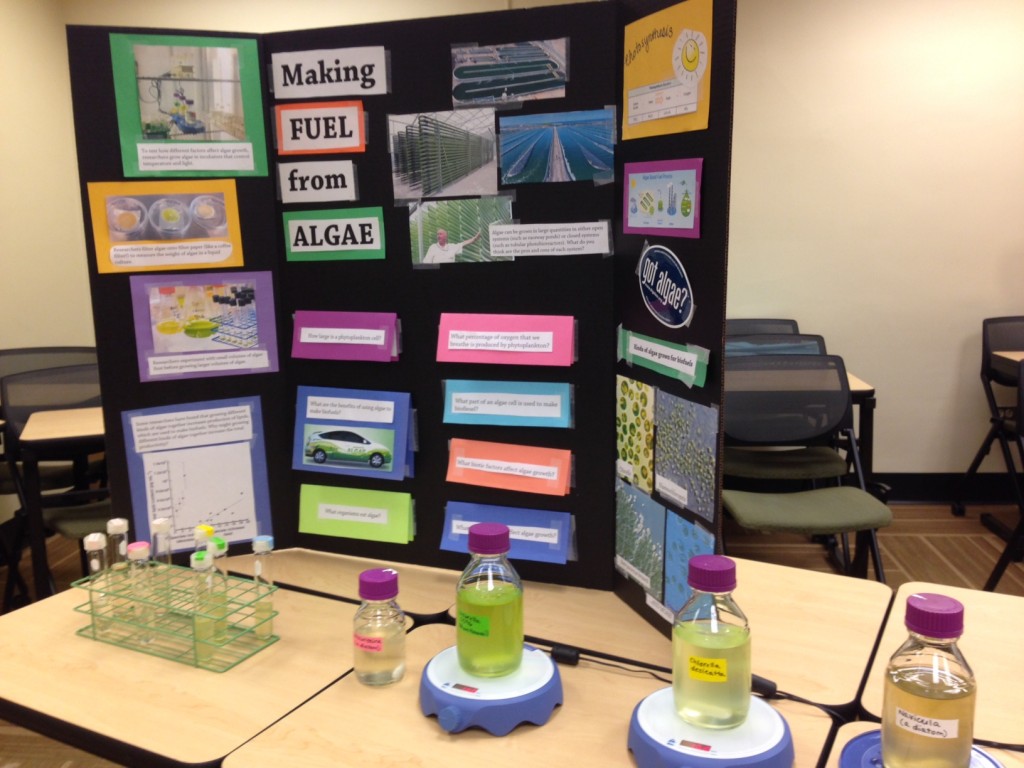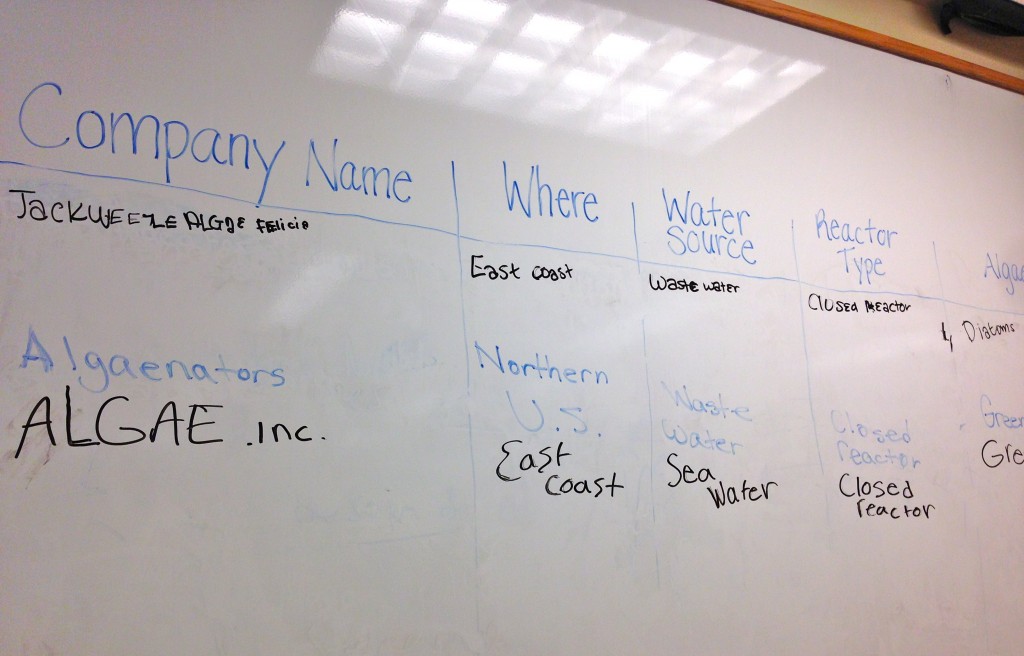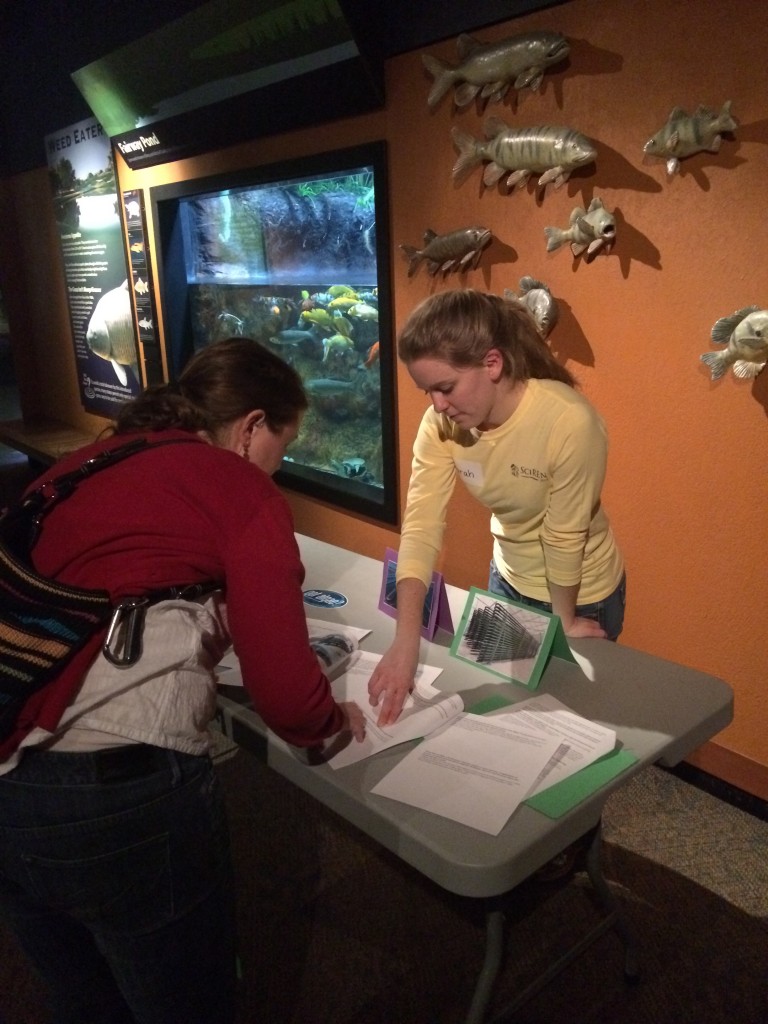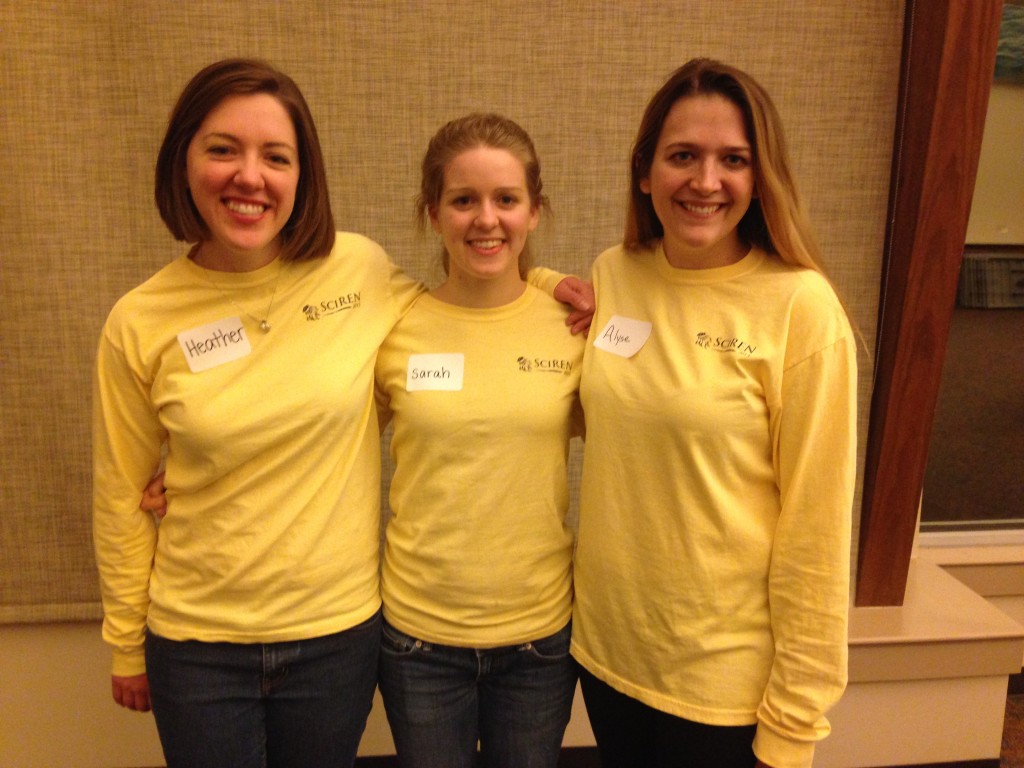Outreach is a major buzzword in grad school and academia. Some see it as an exciting opportunity and some see it as a necessary chore to comply with grant requirements. Either way, it’s important for researchers to connect with the public about their work and most of the time outreach feels very rewarding. It allows you to step back from the details of your day-to-day tasks and look at the big picture that you want others to see.
February was an important outreach month with two major Duke-related events occurring. The first was a FEMMES (Females Excelling More in Math, Engineering, and Science) Capstone event, which I also participated in last year. FEMMES organizes STEM outreach programs for girls, and the Capstone event is a day full of STEM workshops designed and led by female professors and graduate students. This year’s event hosted a record number of 300 4th-6th grade girls from Durham, who each attended four workshops throughout the day.

During my workshops I introduced myself and explained what a graduate student was, and then introduced algae and biofuels by asking the girls questions in front of a display. Next the girls played an Algae Survivor game in which they randomly picked cards that had algae growth requirements and non-requirements written on them. They discussed what they thought algae needed to grow and traded cards within their groups so that as many girls (or algae) could survive. Then the girls became mangers of their own algal biofuel facilities. I provided them with a budget, a U.S. map indicating where the most promising locations for growing algae were, and some pros and cons of different algae strains, reactor types, and water sources. Their task was to use the information and money they had to make decisions about where and how to grow their algae. This workshop plan is included at the end of this post.

I was a bit discouraged when my first group of the day seemed less than thrilled to learn about algae. They wanted to immerse their hands in goo and dissect brains instead. I made a mental note to include more get-your-hands-dirty activities next year, and tried my best to raise the excitement level. My third group of the day made the trip to Durham entirely worth it: they were incredibly enthusiastic and engaged in the activities, and took their algae companies very seriously (and they even made it into Duke Today!). My highlight of the day was hearing middle school students thoughtfully discussing whether they should invest in closed or open reactors (or both) at their algae cultivation facility, and debating other relevant decisions about their companies.

I enjoy participating in the FEMMES Capstone events because of the complete freedom in designing a workshop. There are no standards to meet or tests afterwards, the very point of the event is to provide an experience that the girls would not receive at school. The other major outreach event this February was different and challenging for me because it was designed for the classroom.
Graduate students at the Duke Marine Lab and UNC Institute of Marine Sciences organized the 3rd annual SciREN (Scientific Research & Education Network) Coast networking event that took place in February. The objective for researchers: create an original lesson plan that incorporates your own research interests, share this lesson plan with educators, and help it get implemented in a classroom. Over 100 educators attended the networking event to talk to local researchers and gain lesson plans related to marine science topics. The event tied together two groups of people who may not otherwise interact but could mutually benefit from each other, and it has succeeded in forging these connections.
Trying to write a lesson plan made me appreciate my school teachers substantially more than I already did. I ended up creating a lesson plan that was similar to my FEMMES workshop but was geared towards older students and included more reading materials and data. At the SciREN lesson plan workshop we learned how to navigate the North Carolina standards for each grade and incorporate these standards into our lesson plans. At this workshop we also gained advice from teachers, the most experienced lesson plan writers of all. There are serious benefits of this kind of outreach: survey data from the event indicated that over 1000 students have been reached by lesson plans presented at a SciREN event, which is a much greater number than if researchers only carried out activities with students directly.

There are many ways to do outreach, including ways that you can make up yourself. Search for organizations that facilitate outreach (like FEMMES and SciREN), ask fellow students and researchers what they do for outreach, and contact local schools and organizations such as scout troops, after-school programs, museums, and libraries. Outreach can take many forms. It is important that all researchers find their outreach niche to publicly share the spark and curiosity that led them to become researchers in the first place.

Below are the algal biofuel activities I used for FEMMES this year, please feel free to use/modify them.

